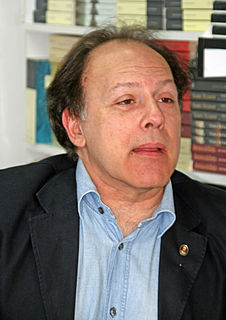A Quote by Denis Diderot
Which is the greater merit, to enlighten the human race, which remains forever, or to save one's fatherland, which is perishable?
Quote Topics
Related Quotes
The truth never shines forth, as the saying goes, because the only truth is that which is known to no one and which remains untransmitted, that which is not translated into words or images, that which remains concealed and unverified, which is perhaps why we do recount so much or even everything, to make sure that nothing has ever really happened, not once it's been told.
Christianity has ever been the enemy of human love; it has forever cursed and expelled and crucified the one passion which sweetens and smiles on human life, which makes the desert blossom as the rose, and which glorifies the common things and common ways of earth. It made of this, the angel of life, a shape of sin and darkness ... Even in the unions which it reluctantly permitted, it degraded and dwarfed the passion which it could not entirely exclude, and permitted it coarsely to exist for the mere necessity of procreation.
Government ought to be as much open to improvement as anything which appertains to man, instead of which it has been monopolized from age to age, by the most ignorant and vicious of the human race. Need we any other proof of their wretched management, than the excess of debts and taxes with which every nation groans, and the quarrels into which they have precipitated the world?"
Of all the endless variety of phenomena which nature presents to our senses, there is none that fills our minds with greater wonder than that inconceivably complex movement which, in its entirety, we designate as human life; Its mysterious origin is veiled in the forever impenetrable mist of the past, its character is rendered incomprehensible by its infinite intricacy, and its destination is hidden in the unfathomable depths of the future... .
What actions are the most excellent? Those, certainly, which most powerfully appeal to the great primary human affections: to those elementary feelings which subsist permanently in the race, and which are independent of time. These feelings are permanent and the same; that which interests them is permanent and the same also.




































